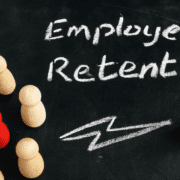Interdependence in B2B customer management – what do we mean?
The Oxford English Dictionary’s definition of interdependence is (unsurprisingly): “depend on each other”, yet until recently we saw little evidence of true interdependence between suppliers and customers in B2B:
- Suppliers would develop their brand strategies and plans and then hope to execute them ‘in-spite-of’ their major customers
- Customers would develop their own brand strategies in isolation from suppliers and mainly obsess with their immediate competitive set.
With the advent of category management, growth in private label and focussed customer development teams we have seen a massive shift over the last 3-5 years.
What changed to drive increased interdependence?
There was a realisation that BOTH the supplier and customer needed to focus on better meeting consumer/shopper/customer needs – if needs could be met then BOTH supplier and customer could grow volumes/share/profitability.
Information became critical to good informed decision making – hence suppliers started sharing their market research data more openly with their customers and informed customers started sharing their data with chosen (partner) suppliers.
There was a realisation that WORKING IN PARTNERSHIP to grow categories through better meeting customer/shopper needs was more powerful than working separately.
This was the key insight that category management and the growth in private label manufacture brought to the B2B table – that commercially trading would always be tough/challenging but that at a higher level joint working was the way forward.
How do we see interdependence reflected in today’s B2B relationships?
We see it in many ways –
- Joint product development – especially in private label
- Extensive data/information/insight sharing (in both directions)
- Co-location (for example the can manufacturer sited adjacent to the soft drinks plant)
- Extensive team working in support of growth objectives
- Shared marketing strategies/plans/objectives
- Joint business development plans – contracts for growth with clear roles and responsibilities on both sides
What is clear is that in order to become truly ‘Customer Attuned’ the supplier needs to be prepared to trust major customers and hence become interdependent on them…this can feel like a risk but is a necessary step if sales and profits are to be maximised.
- Improving Customer Planning through greater Attunement - April 22, 2015
- RBS vs O2 – Understanding the power and value of trust - February 28, 2015
- Equitability in B2B Relationships - February 28, 2015


